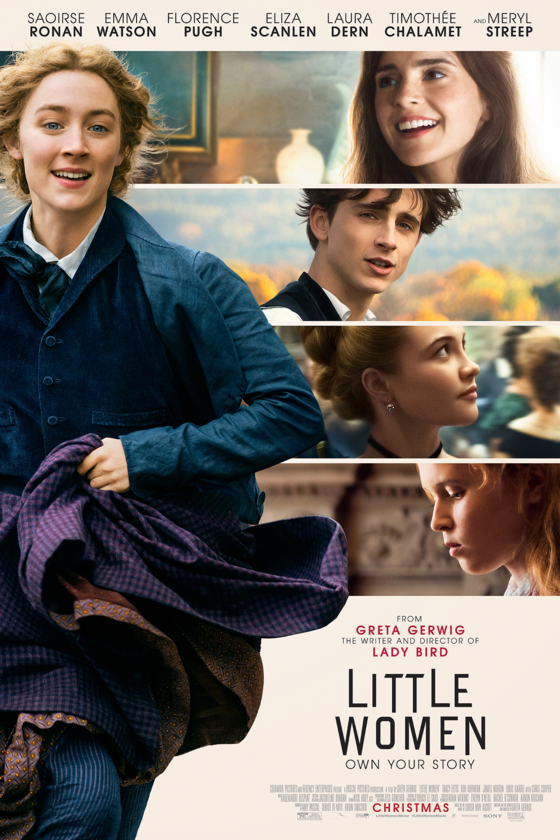‘Little Women’ Is No Little Achievement

by Jack Miller ‘21
Greta Gerwig’s “Little Women” is full of love. Every frame is bursting with warmth—the passion and care poured into it can be felt during every second, even the most fleeting of moments. Whereas other films so joyous might feel corny, “Little Women” feels genuine—because that’s exactly what it is.
Gerwig’s sophomore effort is based off Lousia May Alcott’s beloved 1868 novel of the same name. The “Lady Bird” director’s spin on the classic story is the seventh film adaptation of Alcott’s novel, which tells the story of four sisters who come of age in America during the Civil War. The miracle of this film is how fresh it is. Gerwig breathes new life into the timeless tale through audacious storytelling techniques that modernize the book’s existing themes but also transcend them in an unexpectedly meta fashion. With the help of a brilliant dual-timeline structure, Gerwig tackles questions of a woman’s identity, ambitions, and place in the world all while ruminating about art and owning one’s story. It’s equal parts genius and poignant.
The film stars Saoirse Ronan, Florence Pugh, Emma Watson, and Eliza Scanlen as the titular sisters. The four are each beguiling in their own way, but the wonderfully energetic Jo (Ronan) and lovable but quarrelsome Amy (Pugh) steal the show in two exceedingly charming performances that carry oodles of emotional weight in the latter half of the film. Laura Dern, who plays their mother, Marmie, graces the screen in a dearly sweet manner, making her few scenes some of the highlights of the film.
Gerwig’s direction is once again fantastic. The pitch-perfect pacing marches the viewer through two deliberately constructed timelines with ease. Nick Huoy’s editing seamlessly glues the two chronologies together through transitions that cleverly juxtapose images spanning the seven-year gap. The gorgeous and tender cinematography and period-appropriate costume and set design give the film the look of a nineteenth century portrait brought to life. Famed composer Alexandre Desplat’s score for the film is suitably cheery, but never cheesy.
“Little Women” is a big film with an even bigger heart. It’s that special kind of movie where everything blends together so well that you can’t help but give a big smile when it’s all over.
Grade: A+